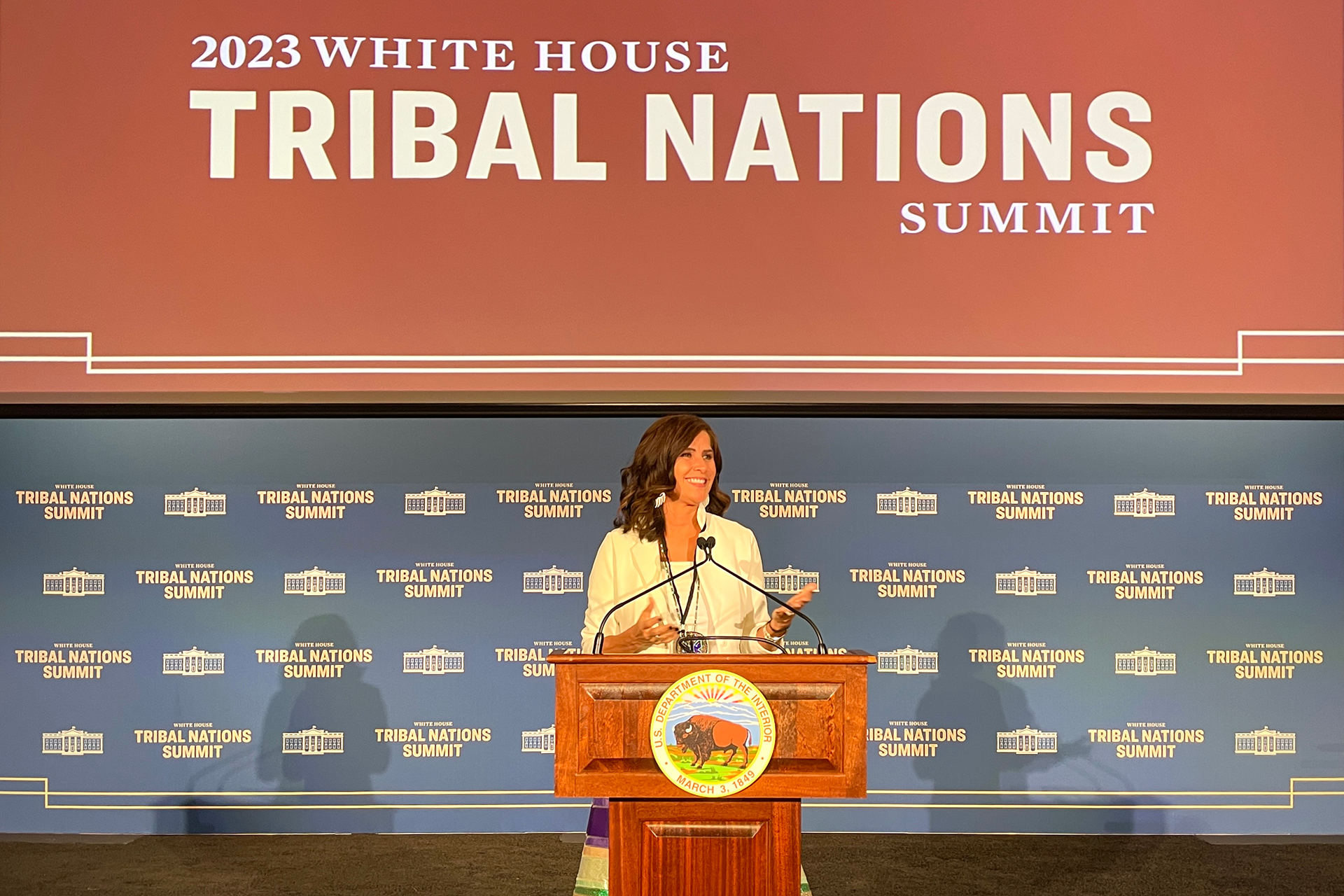As an elected leader of the Confederated Tribes of Grand Ronde, I had the incredible privilege of attending the White House Tribal Nations Summit this year, a momentous event that brought together tribal leaders from across the United States. With over 300 tribal nations represented and one representing leader per tribe, I cannot express my gratitude for serving in this capacity.
The summit served as a platform for meaningful dialogue and collaboration between Indigenous communities throughout the U.S and the highest level of government. The energy was palpable as we heard story after story from tribal leaders of their respective communities. It was a powerful reminder of the strength and resilience of our collective efforts to improve the lives of all tribal citizens. We heard encouraging words from both the President and Vice President, who each expressed their deep commitment to honoring tribal values, sovereignty and our inherent right to self-govern. Their words resonated with the audience as they both acknowledged the historical injustices inflicted upon our people throughout history. President Biden closed by signing an executive order solidifying his Administration’s dedication to reforming Federal funding and support to tribal nations to “better embrace our trust responsibilities and promote the next era of tribal self-determination”.
In addition, Deb Haaland, Secretary of the Interior spoke eloquently and thoughtfully about the need for improving tribal consultation and not just “checking a box”, as well as expanding upon federal training for thousands of federal employees on best practices for tribal consultation. We heard a great deal about the new grant portal, a one-stop shop for applying for grants with simpler and streamlined processes in one location in every programmatic area for tribes across America.
Likewise, Secretary of Commerce Gina Raimondo reported that an additional $3 billion in funding is being committed to broadband infrastructure in native country with high speed internet. I was disheartened to learn that 1 in 3 native students in Indian country do not have access to the internet with personal stories of students that have had to sit long hours in parking lots of their local fast food restaurants just to be able to do their homework.
Secretary Raimondo also spoke at length about the need to get the word out for the Affordable Connectivity Program that helps ensure that households can afford the broadband they need for work, school, healthcare and more. The benefit provides a discount of up to $30 per month toward internet service for eligible households and up to $75 per month for households on qualifying Tribal lands. Eligible households can also receive a one-time discount of up to $100 to purchase a laptop, desktop computer, or tablet from participating providers if they contribute more than $10 and less than $50 toward the purchase price. The Affordable Connectivity Program is limited to one monthly service discount and one device discount per household.
For questions about your eligibility or application status, call the ACP Support Center at (877) 384-2575 or email: [email protected].
As the summit came to a close, I couldn’t help but think of the way things were supposed to be for Indigenous people, the way our Creator intended it to be, including our Government-to-Government relations. What a complicated relationship it has been. This dichotomy between what is and what should have been is something that every native person will wrestle with at some point during this journey. With that said, it was easy to be inspired in a roomful of hundreds of indigenous leaders always ready to offer a warm smile and embrace. In fact, when Sharice Davids, one of the first of two Native American women serving in Congress smiled and waved at me like we were old friends, I felt a deep kinship in such a special way.
In closing, it is very encouraging to see our nation-to-nation relationships being strengthened. I left with a profound sense of reverence for native people and their incredible resilience. I spoke to a Chippewa man from Minnesota who said he’d been serving on his Tribal council for over 25 years and he’s attended every summit thus far and yes, while we’re still talking about some of the same issues, we’re still here and we’re still fighting for the rights of our people. As the summit came to an end and I watched two elderly women from the Chevak tribe in Alaska dancing, drumming, smiling and singing their hearts out, I felt a renewed sense of hope and optimism for our future.
Hayu Masi.
